Are you hoping to find a suitable coconut substitute? There are several wonderful alternatives you can use if you don’t like its taste or if you have coconut allergies.
Any dessert that incorporates coconut flavoring is sure to be a success. The flakes aren’t the only thing to love about coconut.
It’s utilized in many different goods, each with its own specific culinary function.
You’ll find some of my favorite alternatives to coconut oil, milk, flakes, cream, water and even coconut aminos!
Jump to:
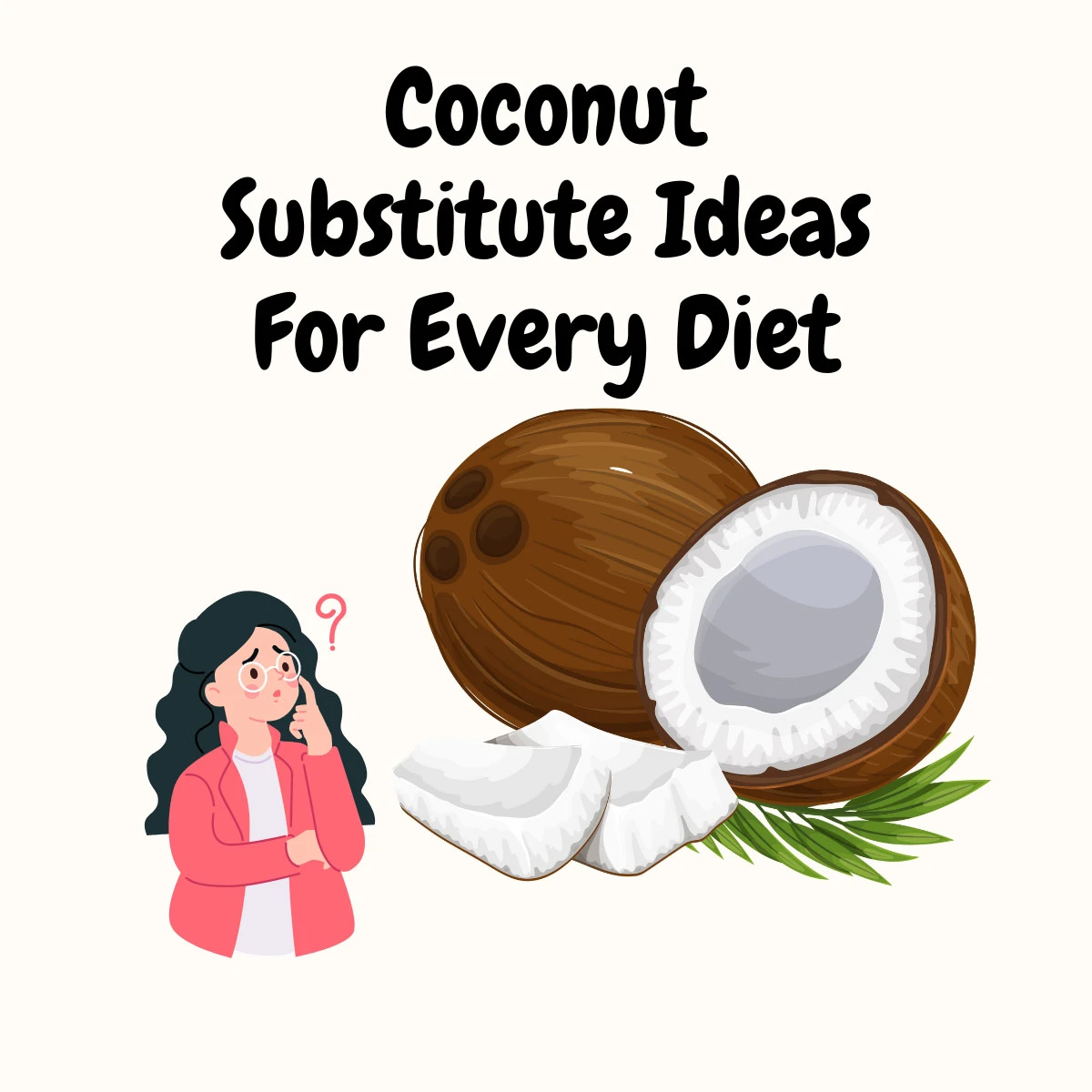
What is coconut?
Coconut, a tropical fruit, has been utilized for ages in many civilizations for culinary, medical, and cosmetic uses. The fruit’s firm, brown shell contains white, juicy meat and delicious, clear coconut water.
Coconut is used in savory and sweet dishes. Coconut milk or cream is utilized in many Asian and Caribbean dishes.
To produce coconut flakes or a crispy dessert topping, coconut should be dried and shredded.
Coconut provides health benefits as well as culinary purposes. Coconut oil, produced from the fruit’s flesh, is heavy in saturated fats but includes medium-chain triglycerides (MCTs), which the body swiftly metabolizes into energy.
MCTs may boost metabolism and improve weight reduction, according to certain research. Coconut oil includes lauric acid, which may boost the immune system with antibacterial and antiviral effects.
Electrolyte-rich coconut water is a popular sports drink.
Coconut is also used in several cosmetics. The moisturizing oil is utilized in lotions, hair conditioners, and lip balms. Coconut oil is a natural makeup remover and skin cleanser.
Coconut is a versatile, nutritious fruit with various culinary, medical, and cosmetic uses!
Substitutes for coconut milk
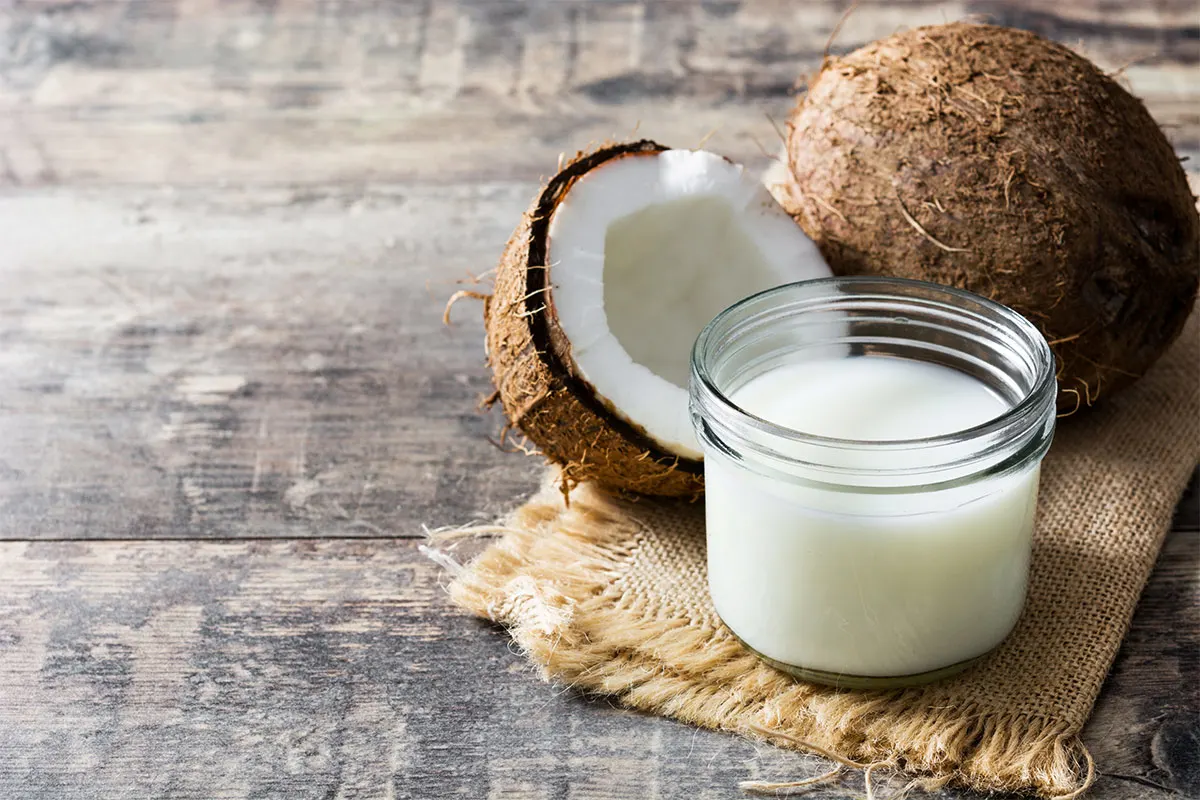
Coconut milk is an essential ingredient in a wide variety of dishes, from curries to smoothies. Several alternatives exist if you have an allergy to coconut or just don’t like the taste:
- Almond milk
In the absence of coconut milk, almond milk is a suitable substitute. It has a similar flavor and texture to pine nuts, making it a versatile addition to many dishes.
- Soy milk
Soy milk is also an excellent option. Its creamy texture and neutral flavor, which is more like that of whole milk than almond milk, make it a great alternative for recipes in which you don’t want the milk to overpower other components.
- Oat milk
Sweeter and thicker than almond or soy milk, oat milk is a plant-based alternative to dairy. It can be used as a substitute for coconut milk because its consistency is quite similar.
Substitutes for coconut flakes/shredded coconut
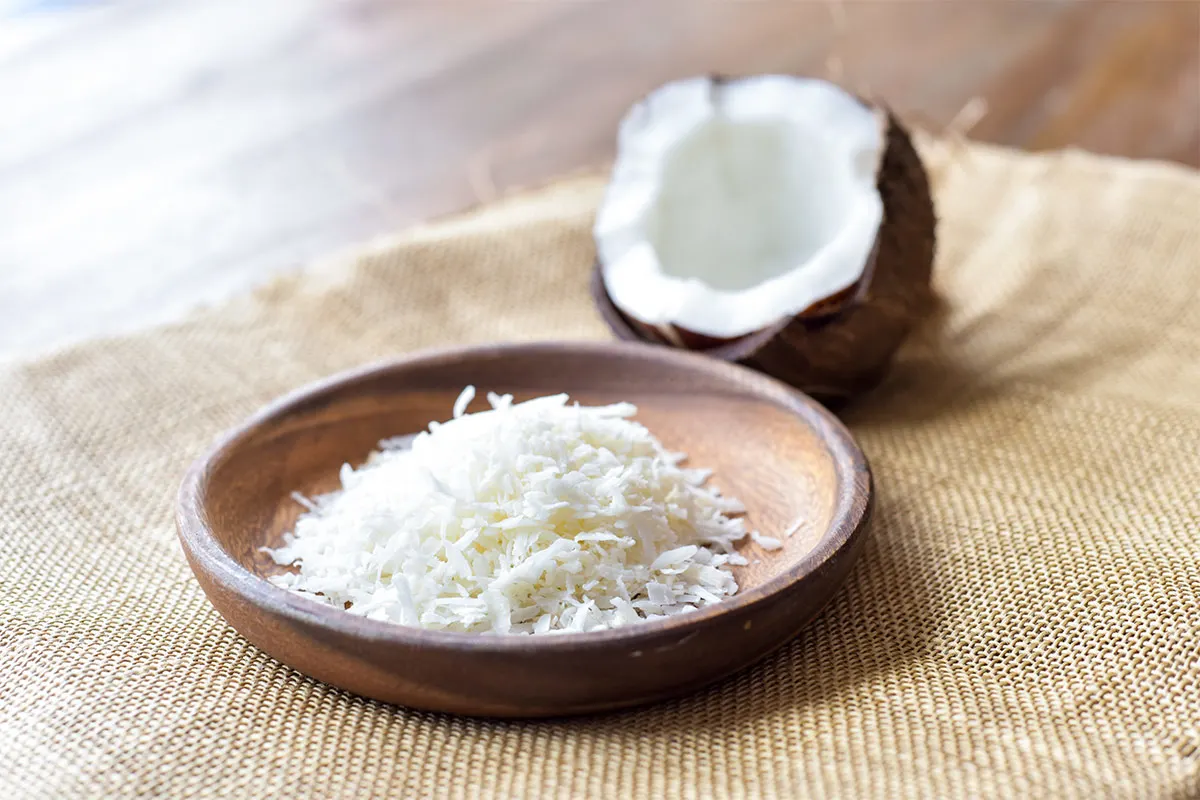
Shredded coconut and coconut flakes are popular ingredients used in the kitchen because of their ability to provide both taste and texture to baked items. Here, nevertheless, are several alternatives to desiccated coconut:
- Chopped or ground nuts
To replace coconut flakes, you can use chopped nuts like almonds, macadamia nuts, cashews, or pecans. Baked goods with their addition will have the same chewy texture and nutty taste.
I recently used chopped macadamia nuts as a substitute for sweetened shredded coconut in granola, and it was great! Macadamia nuts gave the granola its rich, nutty flavor and lovely texture.
- Oats
Any dish that asks for coconut flakes can be made with oatmeal or rolled oats instead. In addition to providing a chewy flavor and texture, they can also act as a binder.
- Granola
Granola is another wonderful option you might try. It has a similar texture and sweet flavor to coconut flakes, making it a suitable substitute for shredded coconut in baking recipes like granola bars and cookies.
Substitutes for coconut oil
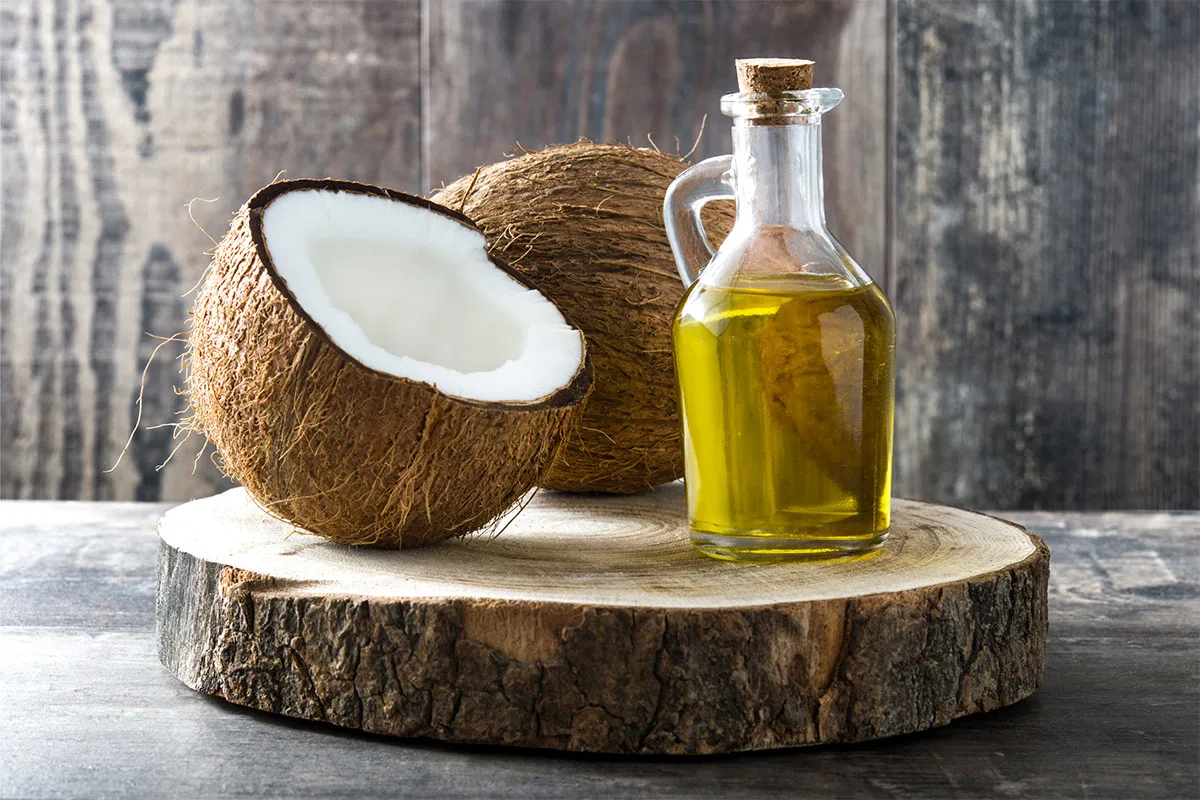
Coconut oil is a staple in many kitchens since it is used in everything from stir-fries to baked goods. But, these are other options to consider as a coconut oil replacement:
- Olive oil
Olive oil can be used instead of coconut oil in savory dishes. The results from either sautéing or roasting are equivalent.
- Avocado oil
Avocado oil is another possible replacement for coconut oil. Because of its high smoke point, it can be used for frying and other high-temperature cooking procedures.
I’ve tried making chocolate chip cookies with avocado oil instead of coconut oil (you can also use coconut oil as an avocado oil substitute). The cookies got a hint of nuttiness from the avocado oil, and it also helped them bake more evenly.
- Hemp seed oil
To those who prefer a more subtle flavor, hemp seed oil is a good substitute for coconut oil. Due to its high content of omega-3 fatty acids, it makes for a great alternative health food.
- Butter
Butter can be used as a replacement for coconut oil in baking. Because of its texture and taste, it can be utilized in similar baking recipes like cakes and cookies.
Vegan butter is an excellent substitute for coconut butter. You can try out some delicious nut butters like almond butter, peanut butter, cocoa butter and more.
Substitutes for coconut cream
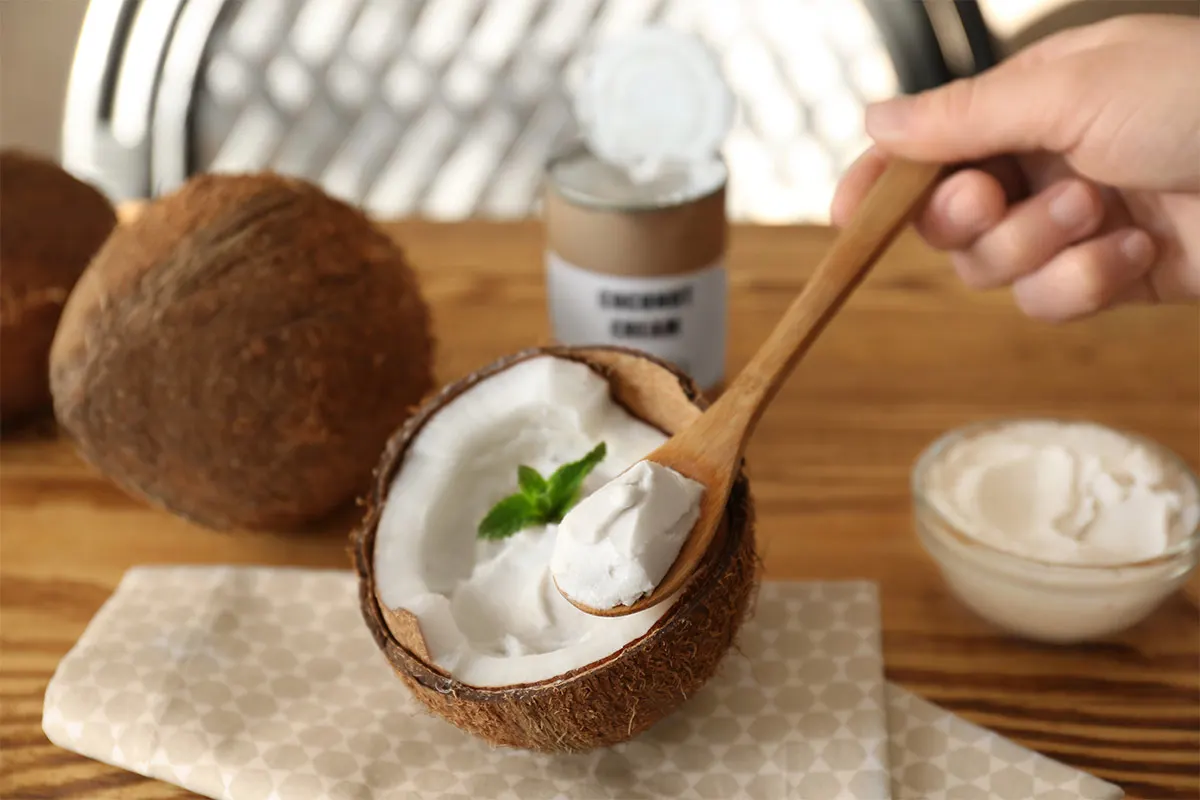
There are a few alternatives that can mimic the lusciousness and flavor of coconut cream:
- Heavy cream or whipping cream
Heavy cream or whipping cream can replace coconut cream in creamy recipes. Heavy and whipped cream aren’t vegan or lactose-free.
- Almond, soy, or oat milk combined with cornstarch
A richer, creamier non-dairy option! Avoid adding sugar by choosing unsweetened choices.
- Greek yogurt
This thick, sour yogurt can replace coconut cream in curries and soups.
I loved using Greek yogurt for coconut cream in a curry! The yogurt made the dish sour and velvety similar to coconut cream. It was a little different in terms of flavor but still a good and pleasant curry variant.
- Silken tofu
Blended with a little non-dairy milk, this vegan option resembles coconut cream. It’s protein-rich and versatile.
- Cashew cream
Soaked and blended cashews can replace the cream of coconut in vegan and dairy-free recipes. It has a neutral taste and provides protein and healthy fats.
You can also try out these cashew substitutes for more cooking applications!
Substitutes for coconut aminos
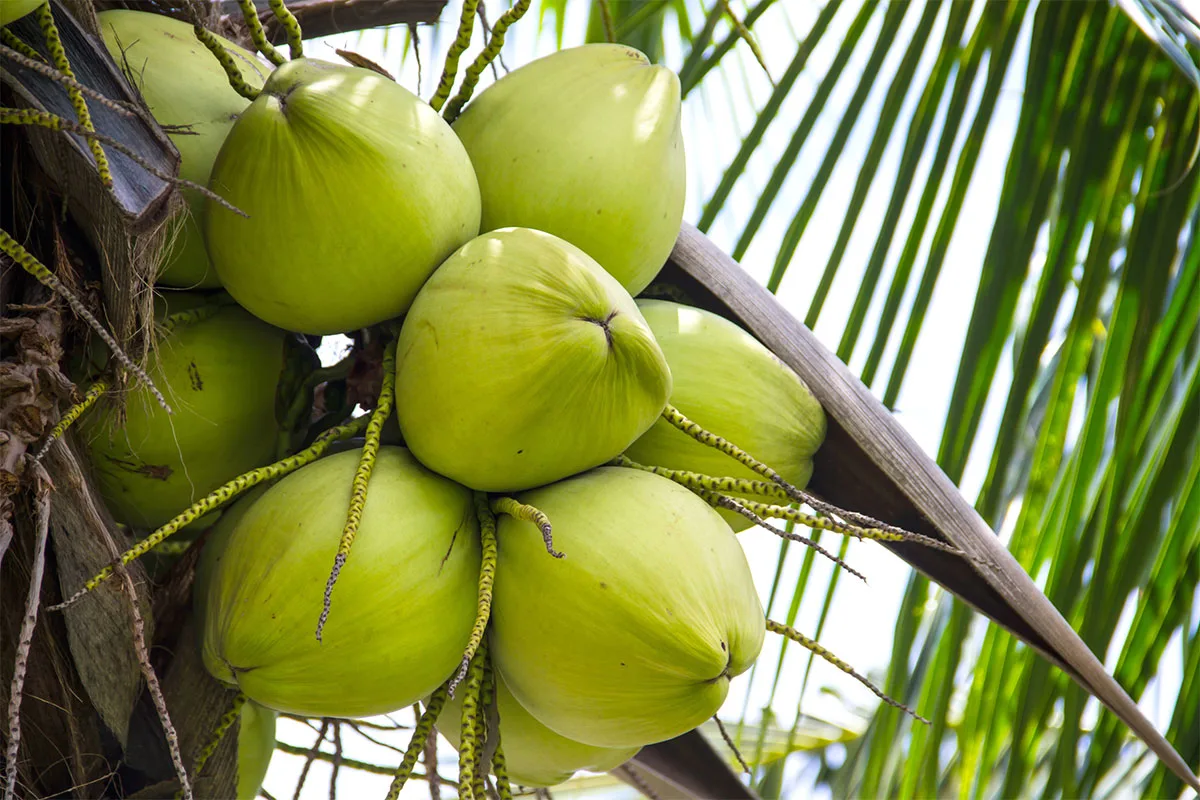
The sauce known as coconut aminos is frequently used as a stand-in for soy sauce or tamari. It originates from the coconut tree sap. Some alternatives to coconut aminos are:
- Soy sauce
Soy sauce is the most popular coconut aminos alternative. It tastes like coconut aminos and can be used in most recipes in the same amounts. Gluten-sensitive people may not be able to eat traditional soy sauce because of wheat.
There are plenty of alternatives to dark soy sauce that I’ve discussed. See if you can glean any further inspiration!
- Tamari
Gluten-free tamari is a richer, less salty soy sauce. Gluten-free and low-sodium eaters will like it!
- Liquid aminos
A gluten-free alternative to soy sauce and coconut aminos. They have a delicious umami flavor from non-GMO soybeans.
- Worcestershire sauce
Similar to coconut aminos, Worcestershire sauce adds depth to savory dishes. Vinegar, molasses, anchovies, and spices make it distinct from the flavor of coconut aminos but still a suitable option.
- Fish sauce
Fish sauce can replace coconut aminos in savory meals. Fermented fish and salt contribute to its umami-rich taste. Vegetarians and people allergic to seafood better avoid this option!
Substitutes for coconut water
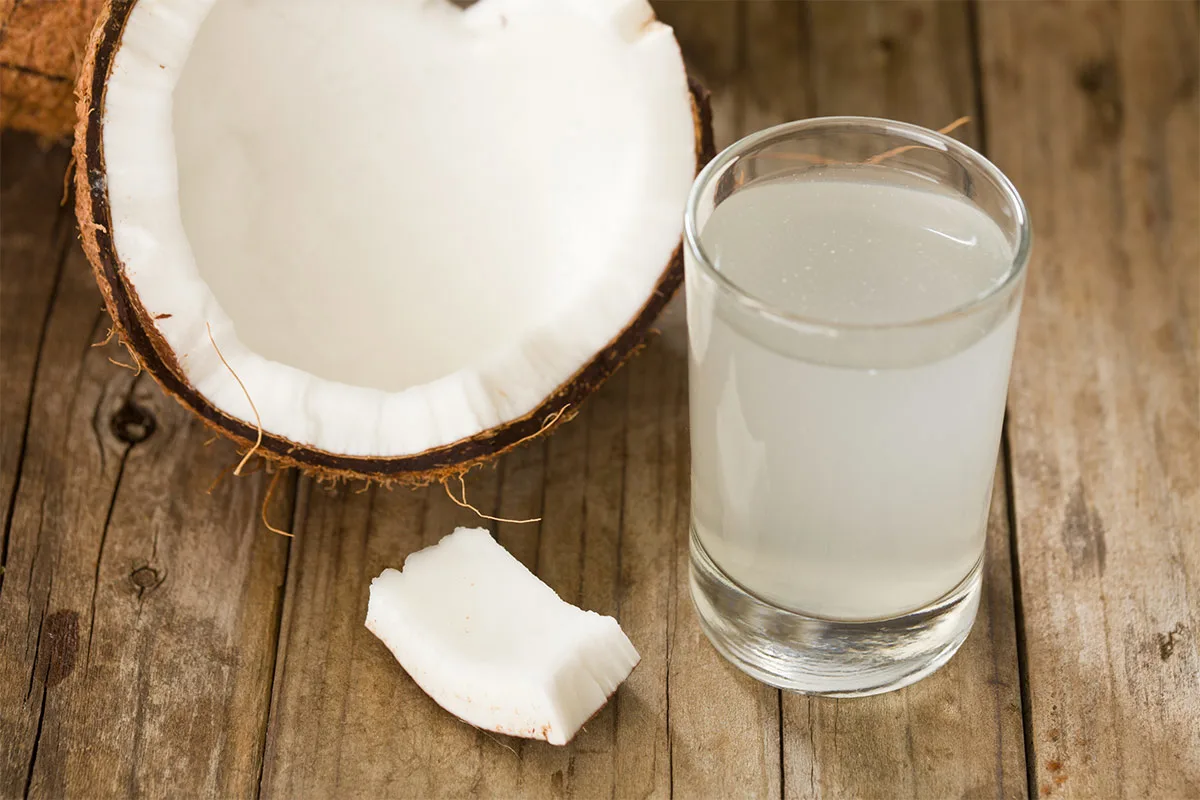
Some of the best alternatives to coconut water are watermelon water, cucumber water, green coconut water, birch water, maple water and aloe vera juice.
I’ve talked about all these coconut water substitutes and their uses in one of my earlier articles. You can check them out for more info!
Coconut substitute FAQs
Vanilla extract, almond extract, and rum are all good alternatives for coconut extract.
Considering its increased vitamin content and possible health advantages, unrefined coconut oil is better than refined coconut oil.
One tablespoon of coconut oil (11.6g) contains 104 calories.
Yes, you can replace coconut milk with powdered milk in some recipes, although it might not have the same taste or consistency.
You can use chopped or ground nuts, oats or granola instead of shredded coconut.
BOTTOM LINE: Coconut milk, flakes, cream, oil, water and coconut aminos can all be replaced with other basic ingredients. Finding suitable options requires a little experimentation. Don’t be afraid to try new things until you find what works best for you.
Are looking for more substitute ideas for different cooking scenarios? Check out these alternatives to maple extract, replacements for persimmon and replacements for mint!
